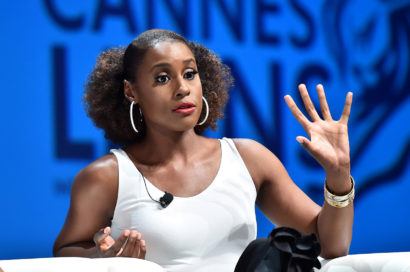Authenticity Lets ‘Insecure’ Rise Above America’s Divisions
by Heather Robinson

From The New York Post

HBO’s hit comedy series “Insecure,” now in its third season, has been holding steady with a loyal and diverse audience, and it’s no wonder: In a time of divisive tribalism in America, “Insecure” emphasizes the authenticity of individual experience.
Issa Rae, the Emmy-nominated writer, director, producer and actress who created and co-writes the show, plays Issa Dee — a funny, intelligent 29-year-old black woman who works for a nonprofit and, in her spare time, creates wildly irreverent rap lyrics.
While it provides a glimpse into some of the particularities of black American millennial culture in Los Angeles, “Insecure” captures the universality of the struggle to find one’s voice and forge one’s path in life.
At a time when many young Americans lean heavily on identity politics for a sense of self, this show, about a highly individualistic young black woman, is nothing short of radical. It also demonstrates that a good story can remind us of what is universal.
The show makes big themes — including relationship ambivalence, the struggle to find meaning in work, the challenge of being a team player while remaining true to oneself — accessible, so while it’s a window into one young black woman’s experience, it’s not only about the black or female experience.
Issa’s character struggles with mixed feelings — first about whether to commit to her handsome, underachieving boyfriend Lawrence, then with how to relate to Daniel, her musician ex, who nurtures her potential as a rapper and struggles with his own baggage. She navigates life alongside best friend Molly (Yvonne Orji), a lawyer whose chaotic personal life, including frequent “app” dates and assignations with a lover in an open marriage, belie her orderly corporate career.
The show captures the way very close female friends speak to one another, sharing vulnerabilities and unflattering details; in contrast, the male characters are shown struggling more to verbalize feelings.
The show’s universality isn’t confined to intimate relationships.
At her job with “We Got Ya’ll,” a nonprofit dedicated to helping underserved minority children, Issa is the only black employee, and she deals with patronizing co-workers who, despite slavish outward devotion to the rules of political correctness, often fail to demonstrate real cultural or interpersonal sensitivity.
In one recent episode, coworkers who had questioned Issa’s decision-making behind her back because they were too afraid to confront her directly team up to out-sensitive one another in critiquing the nonprofit’s name and logo for being out of touch.
“Well, it’s not great that there’s a white hand scooping up black kids,” one says.
“I hate to be that guy, but in a post-‘Moonlight’ America, don’t you think we should incorporate a rainbow?” says another.
“Right, also, there’s two boys and only one girl. Helloooo, time’s up!” a third chimes in.
When the discussion turns to identity politics at lunch, Issa tells her co-workers, “I don’t want to be the voice of all black people.”
At this and other moments, it seems like one of the points Rae is making is that while she is a black woman, she is first an individual. She also cares more about substance than political correctness.
Indeed, the show’s audience is diverse, with African-Americans comprising about half of its viewers and viewership tipping “slightly to women at 53 percent,” according to an HBO spokesperson. That said, the show is a huge hit with black viewers; here in New York, Rae herself appeared at a recent pop-up screening in Harlem where the line to meet her stretched for a full mile around the block.
While Issa’s character encounters external obstacles, the heart of her struggle is with herself: she fears that she lacks a passion for her work; that she isn’t making a difference; that she won’t find love; that she has no business performing rap songs with the crazy lyrics she dreams up as an outlet for her because she worries they’re “stupid” (in fact, they’re brilliant and hysterical).
Like all great American coming-of-age stories, “Insecure” reminds us that each of us is not merely a victim of circumstance, but an individual with the power to pursue his or her own path toward fulfillment.
It’s a joy to tune in each week and watch Issa as she tries, like the rest of us, to figure it all out with tenacity and awkward grace.
This entry was written by Heather Robinson and posted on August 29, 2018 at 1:25 am and filed under Features. permalink. Follow any comments here with the RSS feed for this post. Keywords: . Post a comment or leave a trackback: Trackback URL. */?>



